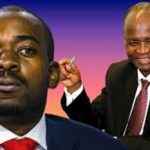In 2007, as the Zimbabwean economy sank into crisis under the weight of British and US sanctions, Branson offered to bankroll an “Elders” initiative to “convince Zimbabwean President Mugabe to step down,” according to a cable sent from the US embassy in Pretoria, South Africa to a number of governments and government agencies, including the CIA.
The Elders is an elite, pro-Western outfit that leverages financial support from an uber-wealthy “advisory council” to influence politics in the Global South. The 2020 advisory council included Branson and Jean Oelwang of Branson’s Virgin Unite, Srik Gopal of Pierre Omidyar’s Humanity United, Randy Newcomb of the Omidyar Group, and Shannon Sedgwick Davis. Additional support was provided directly by Humanity United.
The Elders’ plan appeared to be part of an initiative presented by Masiyiwa to the US government and detailed in a January 30, 2007 diplomatic cable. According to the US embassy in Pretoria, South Africa, “Exiled Zimbabwean businessman Strive Masiyiwa is quietly floating an idea to shift executive power from President Mugabe to a ‘technocratic’ Prime Minister.’”
The US embassy labeled Masiyiwa “strictly protect,” a designation typically applied to an intelligence source or asset.
A US diplomatic cable dispatched on July 16 – five days after the Elders’ plan was detailed – revealed new regime change activities involving Masiyiwa.
“A group of exiled Zimbabwean economists and businessmen is developing plans for Zimbabwe’s economic recovery once an internationally-acceptable government takes office, according to South African-based businessman Strive Masiyiwa,” the cable reads, adding that Masiyiwa “wants to keep the initiative – particularly his involvement – confidential.”
“Masiyiwa believes ‘change will come’ to Zimbabwe by December, likely as soon as August, although it is not clear what the change will look like,” the cable stated.
Following Mugabe’s planned removal, the cable outlined “plans focusing both on stabilizing the macroeconomic environment” — code for neoliberalizing public institutions and implementation of economic austerity measures.
In the diplomatic cable, Masiyiwa is said to have observed that “it would be potentially impossible to return to the days of large commercial farms,” and that “land will be one of the most difficult topics” under a new government.
But clearly something still needed to be done, as Mugabe was “attempting to repeat with business what he did with the farms”.
“We understand the USG has developed its own plans for Zimbabwe’s economic recovery phase. If appropriate, it may be useful to share elements of that strategy with Masiyiwa or members of his team to inform their thinking – and ours – in advance of the political change in Zimbabwe,” the cable concluded.
Continued next page
(468 VIEWS)


